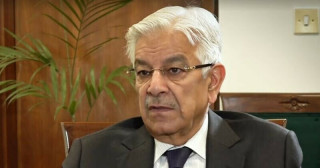Geek
Chief Minister (5k+ posts)
DUBAI, United Arab Emirates - Emirati officials have declared BlackBerry smartphones a potential threat to national security because users' data is stored overseas, where local laws don't apply and where analysts say it could be harder for authorities to monitor.
The move renews concerns about efforts by the United Arab Emirates to control the flow of information in the Gulf nation, which includes the business hub Dubai and the oil-rich emirate of Abu Dhabi. The federation of seven hereditary states actively censors websites and other forms of media seen as harming national security and conservative local values.
Because BlackBerry maker Research in Motion's computer servers are located outside the country, "it makes it easier for them to refuse requests from the authorities for users' personal data," said Lucie Morillon, head of the new media desk at advocacy group Reporters Without Borders, which monitors efforts to control smartphone use.
"The authorities cannot access BlackBerry information as easily as they can a local operator's information," she said.
It is the second major controversy over the Blackberry in the UAE. A year ago, the country's biggest state-run mobile operator was caught encouraging unwitting BlackBerry users to install software on the devices that could allow outsiders to peer inside. The government has never made fully clear what happened in that case.
In the latest flap, the Telecommunications Regulatory Authority voiced fears that the BlackBerry manages data in a way that could allow it to be misused. BlackBerry devices were singled out because they are the only phones operating in the country that automatically relay users' information abroad, the regulator said.
United Arab Emirates declares BlackBerry smartphone a possible threat to national security
The move renews concerns about efforts by the United Arab Emirates to control the flow of information in the Gulf nation, which includes the business hub Dubai and the oil-rich emirate of Abu Dhabi. The federation of seven hereditary states actively censors websites and other forms of media seen as harming national security and conservative local values.
Because BlackBerry maker Research in Motion's computer servers are located outside the country, "it makes it easier for them to refuse requests from the authorities for users' personal data," said Lucie Morillon, head of the new media desk at advocacy group Reporters Without Borders, which monitors efforts to control smartphone use.
"The authorities cannot access BlackBerry information as easily as they can a local operator's information," she said.
It is the second major controversy over the Blackberry in the UAE. A year ago, the country's biggest state-run mobile operator was caught encouraging unwitting BlackBerry users to install software on the devices that could allow outsiders to peer inside. The government has never made fully clear what happened in that case.
In the latest flap, the Telecommunications Regulatory Authority voiced fears that the BlackBerry manages data in a way that could allow it to be misused. BlackBerry devices were singled out because they are the only phones operating in the country that automatically relay users' information abroad, the regulator said.
United Arab Emirates declares BlackBerry smartphone a possible threat to national security






































